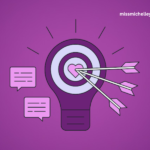In today’s technology-driven landscape, the term “digital citizen” encapsulates the individuals who skillfully utilize digital tools to enhance productivity and efficiency. A digital citizen not only operates effectively within online spaces but also embraces technology to improve various aspects of life, from work and education to social interactions and personal management. This article explores the characteristics of a productive digital citizen, the tools and strategies they employ, and the role of digital literacy in maximizing technological benefits. Let’s uncover the journey of a digital citizen towards a productive, efficient lifestyle with technology.
Understanding Digital Citizenship in a Technological Era
Digital citizenship extends beyond merely accessing online platforms—it’s about interacting responsibly, ethically, and efficiently with the technology that permeates daily life. A digital citizen harnesses technology to improve productivity, streamline tasks, and enhance work-life balance. This modern concept applies to both individuals in professional spaces and students in educational settings, making digital citizenship essential for people of all ages.
The evolution of digital citizenship has expanded its scope, merging productivity, communication, and digital ethics. Here, the traits of a digital citizen include being mindful of digital etiquette, protecting privacy, and leveraging digital tools for better outcomes in personal and professional domains. With each passing year, the importance of digital citizenship grows, creating more demand for individuals to become well-versed in the digital ecosystem.
Characteristics of a Productive Digital Citizen
Efficient Time Management
A productive digital citizen utilizes digital tools for time management, understanding that efficiency is rooted in strategic planning. From scheduling apps like Google Calendar to task organizers such as Trello, digital citizens optimize their routines to allocate time effectively for various activities. Time management software enables users to set reminders, create to-do lists, and prioritize tasks, leading to heightened productivity.
Digital Literacy and Adaptability
A key characteristic of digital citizenship is a strong foundation in digital literacy. Digital citizens are open to learning new technologies, adapting quickly to updates or new systems. Adaptability enables them to transition seamlessly between different platforms or devices, increasing productivity and reducing time spent troubleshooting unfamiliar tools.
Cybersecurity Awareness
To maintain productivity, a digital citizen must be aware of cybersecurity. By safeguarding their data, digital citizens avoid the time-consuming consequences of data breaches and cyber threats. They use secure passwords, enable two-factor authentication, and rely on trusted platforms for secure communication. Protecting data ensures continuous productivity without interruptions from potential cyber risks.
Effective Communication and Collaboration
Digital citizens utilize technology to communicate efficiently, whether for work, education, or personal use. Collaboration tools like Slack, Microsoft Teams, and Zoom allow real-time communication and project sharing, promoting teamwork and enhancing productivity. For students and professionals alike, these tools facilitate learning and project completion, building collaborative skills vital to any productive digital citizen.
Resource Management and Efficiency
A digital citizen knows how to use technology for resource management. From finance apps to document-sharing platforms, digital citizens keep track of personal and professional assets efficiently. They may use platforms like Google Drive or Dropbox to organize files, and budgeting apps to monitor finances, ensuring productivity in every sphere of life.
Technological Tools that Boost Productivity for Digital Citizens
Task and Project Management Software
Digital citizens use project management tools like Asana, Monday.com, and Basecamp to streamline projects and tasks. These tools enable users to set goals, assign tasks, and track progress in real time, maximizing productivity and team efficiency. With task management software, digital citizens achieve faster project completion by tracking milestones and addressing challenges in organized ways.
Productivity Apps
To-do lists, time trackers, and productivity apps like Evernote, Todoist, and RescueTime empower digital citizens to stay organized. By scheduling tasks and setting reminders, digital citizens enhance productivity and reduce procrastination. With such tools, they can set clear daily objectives, track time spent on tasks, and ensure a productive workflow.
Cloud Storage and File Sharing Solutions
Cloud storage services like Google Drive, Dropbox, and OneDrive allow digital citizens to access files remotely, encouraging flexibility and productivity. Cloud-based tools support collaboration by enabling multiple users to access, edit, and share documents in real-time, which is crucial in today’s remote work environment.
Communication Platforms
For real-time, efficient communication, digital citizens depend on platforms such as Zoom, Slack, and Microsoft Teams. These platforms bridge gaps in communication by offering instant messaging, video conferencing, and file sharing. By using such tools, digital citizens save time that would otherwise be spent on lengthy emails or in-person meetings, allowing for a more streamlined approach to communication.
Personalized Learning and Skill Development Tools
Digital citizens are proactive about self-improvement, frequently using platforms like Coursera, LinkedIn Learning, and Udacity to upskill. This commitment to learning not only increases their productivity but also keeps them competitive in the ever-evolving digital landscape. By mastering new tools or technologies, digital citizens enhance their capabilities and remain adaptable in diverse professional environments.
The Role of Digital Literacy in Becoming a Productive Digital Citizen
Digital literacy is foundational for any digital citizen aiming to be productive and efficient. Understanding how to navigate digital tools, platforms, and devices allows users to operate effectively, maximizing the benefits of each tool. Furthermore, digital literacy extends to understanding online etiquette, privacy protection, and knowing how to distinguish credible sources of information. As technology continues to advance, digital literacy helps citizens keep pace, adapting to new tools and software that foster productivity.
Training programs and resources on digital literacy are essential for fostering competent digital citizens. Schools, organizations, and online platforms provide courses to help individuals enhance their digital literacy, making it easier to adopt new technologies and become productive digital citizens. Whether it’s learning advanced software, cybersecurity practices, or the nuances of digital communication, digital literacy empowers individuals to leverage technology confidently and efficiently.
Benefits of Productivity as a Digital Citizen
Enhanced Work-Life Balance
Digital tools that streamline work processes contribute to better work-life balance. For instance, remote work tools allow digital citizens to work from anywhere, reducing commute times and allowing for more flexible schedules. The result is a balanced lifestyle that fosters both personal well-being and professional productivity.
Reduced Redundancy and Streamlined Workflows
By adopting technology, digital citizens reduce redundant tasks and streamline workflows. Automation tools, such as Zapier or IFTTT, eliminate repetitive work, freeing up time for high-priority tasks. This automation approach boosts productivity, as digital citizens can focus on core responsibilities while technology handles the repetitive parts.
Increased Opportunities for Collaboration
Digital citizens benefit from global collaboration opportunities, thanks to technology. Virtual collaboration tools break geographical barriers, allowing digital citizens to work with individuals worldwide. This connectivity enhances learning, creativity, and innovation, driving productivity as digital citizens access a wider network of resources and expertise.
Continuous Learning and Adaptability
Technology fosters a learning culture that keeps digital citizens informed and adaptable. As industries evolve, digital citizens stay productive by embracing continuous learning through online courses, webinars, and industry updates. This dedication to growth helps them remain efficient, even as technology evolves.
Improved Data Management and Decision-Making
With tools like data analytics software, digital citizens can make informed decisions based on real-time insights. Data management platforms allow digital citizens to organize and interpret data effectively, ensuring better decision-making. By analyzing data trends, digital citizens make strategic choices that lead to improved productivity in both personal and professional areas.
Strategies for Digital Citizens to Improve Productivity
Goal Setting and Task Prioritization
Digital citizens should start by setting clear, achievable goals. SMART goals—Specific, Measurable, Achievable, Relevant, and Time-bound—help digital citizens maintain focus. Task prioritization through digital planners ensures they complete high-priority items first, maximizing daily productivity.
Reducing Digital Distractions
While technology offers countless productivity tools, it also brings potential distractions. Digital citizens employ techniques like “time-blocking,” where they allocate specific periods for tasks, minimizing interruptions. Focus apps, such as Forest or Focus@Will, encourage sustained productivity by blocking distractions.
Regular Skill Assessment and Improvement
Digital citizens periodically assess their skills and knowledge to identify areas of improvement. By investing time in learning new tools or enhancing current skills, they stay relevant and productive. Platforms like Skillshare or Udemy provide courses tailored to various professions, helping digital citizens refine their expertise and productivity.
Maintaining Digital Security
Productivity can be severely hindered by security breaches or data loss. Therefore, digital citizens should invest in security software, such as VPNs or antivirus programs, to safeguard personal and professional data. Regular updates and secure practices ensure uninterrupted productivity.
Balancing Screen Time
Excessive screen time can affect productivity negatively. By setting boundaries on digital usage, such as scheduled breaks, digital citizens maintain a healthy balance that supports productivity. Tools like screen-time trackers or scheduling breaks can help digital citizens stay refreshed and focused.
Conclusion
Being a digital citizen today requires more than basic tech knowledge; it involves a comprehensive understanding of how to use technology responsibly, productively, and efficiently. By embracing digital tools for time management, communication, learning, and security, digital citizens maximize productivity in both personal and professional spheres. With digital literacy and continuous skill improvement at the core, digital citizens can harness the power of technology to lead fulfilling, balanced, and productive lives. As digital citizenship continues to evolve, the productivity potential of technology remains boundless, making every digital citizen a crucial participant in the modern, interconnected world.






